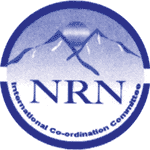 It is very exciting that Bipalis are finally getting together right here in the Motherland. Apart from working on a consensus definition for overseas Nepalis, people of Nepali origin, non-resident Nepalis, prabasi Nepalis don't expect much from this conference. The Beed's preferred label for them is Bideshi Nepalis, or 'Bipalis'.
It is very exciting that Bipalis are finally getting together right here in the Motherland. Apart from working on a consensus definition for overseas Nepalis, people of Nepali origin, non-resident Nepalis, prabasi Nepalis don't expect much from this conference. The Beed's preferred label for them is Bideshi Nepalis, or 'Bipalis'. Even so, this is the beginning of a process ,so one has grounds to be cautiously optimistic. Fingers crossed that this summit will not be plagued by the very Nepali tendency of missing the bus because of internal wrangling. Hopefully the expected turnout of 200 Bipalis from different parts of the world will see numbers and quality in those numbers. This is a beginning and it could mark a turning point in our history.
The phrase Non-Resident Nepalis (NRN) comes from the national tax system and is a close kin to the phenomenon of the Non-Resident Indians (NRI). The biggest job is to correctly define the NRN beyond the taxman's lexicon. With more than a million Nepalis outside the subcontinent, we are faced with the uphill task of finding a word that is inclusive enough to embrace Bipali millionaires and manual migrant workers. For the most part they have one thing in common: they send greenbacks home.
You can take a Nepali out of Nepal, but a Nepali will remain a Nepali. Bipalis are fond of creating organisations and the organisational positions that come with it, just as back home. Not only is one faced with coming up with a working definition, but also the monumental job of drawing everyone under the same umbrella. With the quest for leadership, there is bound to be the famous Nepali trait of 'leg pulling'.
Our diaspora are a strange and diverse lot. Most Nepalis in the US are reluctant to give up their citizenships here, putting them in a bind because of legislation on right to property. A prominent Nepali attorney in the US recently told me that despite the exodus to America, Bipalis there are reluctant to swear exclusive allegiance to the Stars and Stripes. Meanwhile, migrant workers in the Gulf and Southeast Asia usually return to Nepal because their meager savings are not enough to invest in property. So only by defining what we mean by Bipalis can we have a body of issues that can be tackled.
The first Bipali meet will focus more on investment issues while keeping the card of dual citizenship up its sleeve. While the government never shies away from verbal red carpet for investments, the Beed wonders what can be delivered by an interim government that has graver-no pun intended-issues to handle. There will be welcome speeches and commitments, but only time will tell who, and more tellingly, which government will deliver the goods.
Getting Bipali investment will not be easy. To begin with, the government cannot have a blanket modus operandi for a businessperson from the US and a wage earner in Malaysia. Different instruments and legislations must be formulated. Unfortunately, our currency is linked to India, which makes for messy tracking of investments. Imagine a Russian Bipali investor having to compare Ruble Dollar prices against Dollar INR parity to see what is happening to a Nepali Rupee investment!
Utter chaos and in today's business environment, the Bipali may decide it isn't worth the trouble. At the moment, the country has high liquidity and domestic money waiting for opportunities. If they haven't been properly channeled, where would we divert Bipali cash? And finally, investments generally from the diaspora in most countries are made through the stock and debt markets. In Nepal, the Stock Market does not function on market rules but on primitive socialistic concepts. The debt market is yet to develop, so what would the Bipalis invest in?
In terms of the meet itself, while it seems preparations are robust for Bipalis to meet the people in government, civil society and the private sector, the Beed is forced to ask just who they will be meeting. In all probability it will be the 'seasoned' older generation. While the voice of the past is all very well, what the Bipalis need to hear and draw from are the future generation of business people. They must meet the new Nepal: English-speaking youth, dynamic Nepali women entrepreneurs who believe 25 million people is a big market and innovation will sell. The current state of Nepal is hindered by a myopic vision locked in the past. If ever there was a time to be future forward, it is here and now.
arthabeed@yahoo.com



